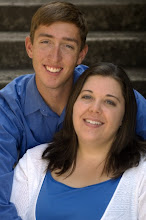 Ad Majorem Dei Gloriam!
Ad Majorem Dei Gloriam!I have begun to work on my lengthy list of books that I have started but not finished. The first in a hopefully continual series of books that I will review is Triumph: The Power and Glory of the Catholic Church by HW Crocker III.
This book serves as a history lesson of the Catholic church in historical terms. That is, it does not necessarily delve deep into the history of Church teaching and the development of Church doctrine; but rather, it illustrates how the Church has survived from the time of its inception to the present day.
HW Crocker III does a fantastic job in my opinion of acknowledging the fact that the Church has seen some times of poor leadership and questionable decision making in its political and military sphere, but always keeps a sense that God protects His Church from doctrinial error and will always lead it through times of trouble.
This point is best illustrated by Crocker as he chronicles the Church center moving from Constantinople (now Istanbul) to Rome, then to Avignon for a brief period, then back to Rome. There have been times where the papacy was hunted and papal states attacked, but despite these worldly attacks, the Church always survives.
In reflecting on this book, I thought about the faithful citizens of the Church during such turbulent times as the Arian heresy and the rise of Protestantism. How hopeless must they have felt seeing such change and such a departure from the Truth in their neighbors. I liken it to the present day where we are feeling a similar attack from the rise of secularism, "feel good Christianity", and an overwhelming sense of trust in material possessions. Some days, the cause of the faithful must feel pretty hopeless but we must remember that God will protect His Church and He will lead His faithful to Heaven. Yes, it is hard; but, it is not unprecedented. How interesting it must be to live another 2000 years from now, God willing, and look back at today and say, "wow, God led His people through THAT?!?!"
There were several passages that struck me and caused me to dog-ear the page.
The first is a quote from Martin Luther who literally had the revelation that sparked his protest while sitting on the privy:
"Be a sinner and sin on bravely, but have stronger faith and rejoice in Christ, who is the victor of sin, death, and the world. Do not for a moment imagine that this life is the abiding place of justice: sin must be commited. To you it ought to be sufficient that you acknowledge the Lamb that takes away the sins of the world, the sin cannont tear you away from him, even though you commit adultery a hundred times a day and commit as many murders."
No comment.
The second quote is a comment on Pope Leo XIII's inability to stave off the French Revolution, and holds particular relevance today when Catholic and democrat do not seem to mix:
"If the future of the Western world was democratic, he [Pope Leo XIII] wanted to set a precedent that established that Catholics could be good democrats and that such political designations should not interfere with the faith."
Next, a quote referring to Nazi Germany's rise to power. Again, particularly interesting given today's attitude on pro-life work:
"Almost immediately after signing the concordat, the Nazis fell afoul of the Catholic Church by legalizing abortion and sterilization (for non-Aryans)--surgical procedures that are now known in the Western world as constitutional rights, but to the Catholic Church were a sign of barbarism of the new regime."
How proud the pro-abort camp must feel for promoting a procedure that the Nazi's praised.
Finally, one excerpt that I found quite interesting in that I had never really considered this position before:
"It is, however, a backhanded compliment to the papacy and the Catholic Church that no one asks why the Free Church of Scotland . . . or any other of the innumerable Protestant churches did not do more to help the Jews. In such enormous world crises [Nazism], there really is only one Christian voice and one Christian institution that matters; the rest--whatever great and heroic individual efforts are made--are so fractured, politically unimportant, or compromised as to be irrelevant."
Come to think about it, no other "church" ever comes out and makes a united stand against the tragedy of abortion, or other social injustices. Very interesting point to consider.
In conclusion, this book was an excellent read: rich in information and very readable. One could read this book for facts and historical knowledge but I think the greater purpose of the book is to gather that the Church has survived for this long and through considerable strife, and that it is not going anywhere.
St. Joseph, patron of families, champion of purity, and model of humility, pray for us!

2 comments:
My favorite religion professor in college taught (and maybe still teaches) a class called, "Crisis in the Church." I didn't take it, but I imagine it covers the same events that your books does. Ours is definitely a resilient Church - Jesus knew what lay ahead when He said that the gates of hell would not prevail against it.
On a lighter note, David likes to say, "one crisis at a time" when I ask him to do or think about too many things at once. Maybe it's a product of his hospital work?
Sadly, this is a book I received as a gift, but never finished. Thanks to your blog entry, I now have the title staring at me every time I hop on my computer to do less important things. :)
Post a Comment